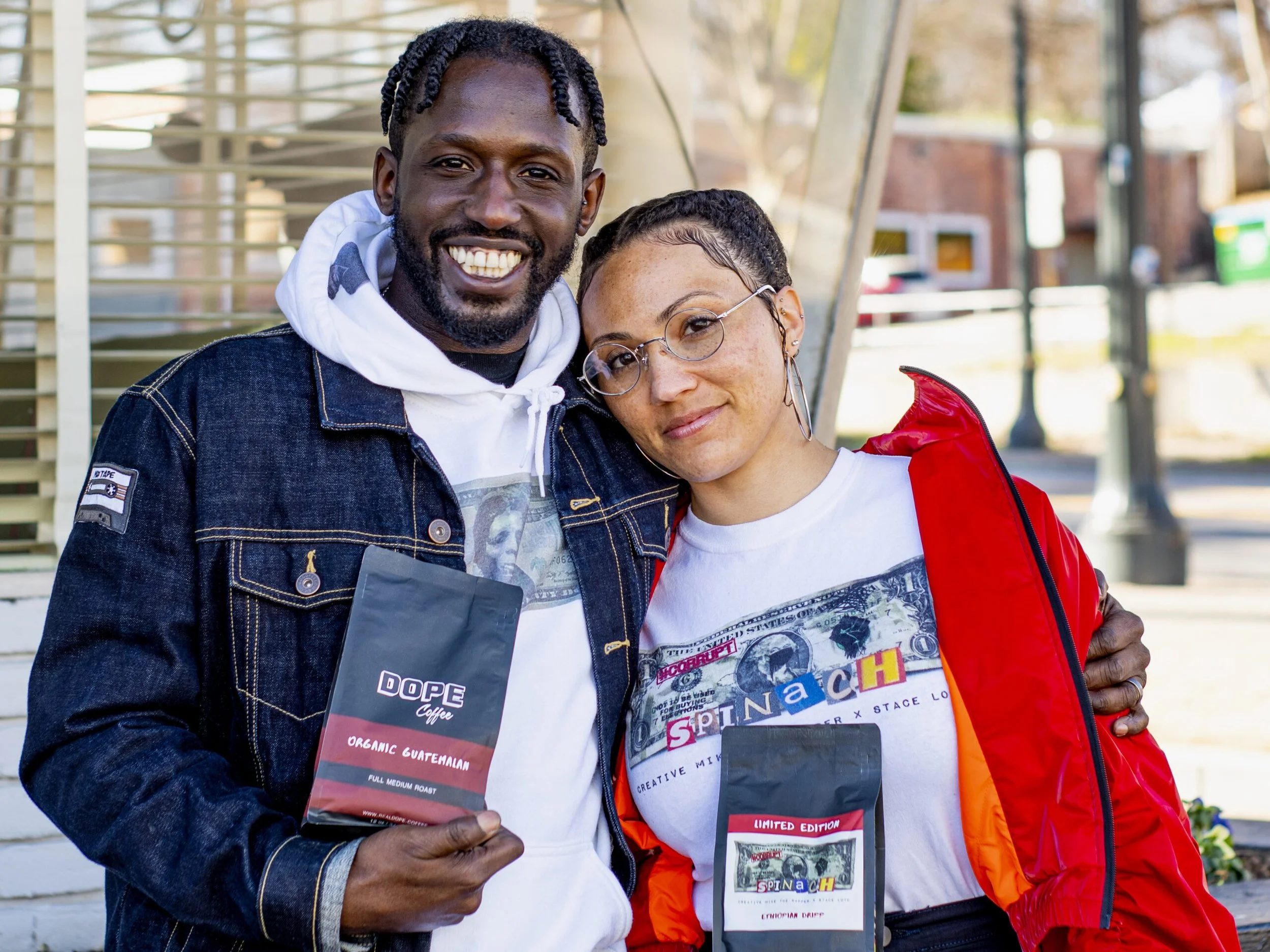Empowering Black-Owned Coffee Shops with African Coffee Supply: A Strategic Framework
In the evolving landscape of specialty coffee, Black-owned coffee shops in the U.S. are uniquely positioned to serve as champions for African coffee, effectively bridging cultural heritage with premium quality offerings that resonate with diverse consumers. Ntare Consulting proudly presents a comprehensive strategy designed to facilitate this crucial connection, leveraging the resources of African financial institutions and the extensive logistics networks within the diaspora to promote a rich tapestry of flavors and traditions.
Co-owners and co-founders Michael and Michelle Loyd are behind “Dope Coffee” in Decatur, which uniquely blends flavorful coffee creations with elements of hip-hop culture to establish a distinctive identity.
1. The Opportunity: Aligning Heritage with Quality
African nations like Ethiopia, Uganda, and Rwanda are renowned for producing high-quality Arabica and Robusta beans. Black-owned coffee establishments can differentiate themselves by offering these authentic flavors, resonating with consumers seeking both quality and cultural connection.
2. Financing the Supply Chain: Leveraging African Financial Institutions
Securing consistent supply chains requires robust financing. African financial institutions offer tailored solutions:
African Export-Import Bank (Afreximbank): Provides export development programs and trade finance facilities to support agro-processing sectors, including coffee.
East African Development Bank (EADB): Offers trade finance products beneficial to commodity exporters, particularly in the coffee subsector.
Ugandan Banks: With the country's coffee export boom, local banks are tailoring offerings to support coffee exporters, providing critical trade finance solutions.
By collaborating with these institutions, Black-owned coffee shops can establish direct trade relationships, ensuring quality and ethical sourcing.
3. Logistics: Harnessing Diaspora Networks
Efficient logistics are vital for maintaining coffee quality:
Africa Global Logistics (AGL): Offers turnkey solutions for import and export operations across Africa, ensuring seamless transportation even in remote areas.
MSC Coffee Solutions: Supports African exporters with logistics solutions that maintain the quality and freshness of coffee beans throughout the supply chain.
Engaging with these logistics providers ensures timely and quality delivery from African farms to U.S. coffee shops.
4. Ntare Consulting's Role: Facilitating Strategic Partnerships
Ntare Consulting serves as a bridge between Black-owned coffee shops and African coffee producers:
Market Research: Identifying African coffee producers that align with the quality and ethical standards desired by U.S. coffee shops.
Financial Navigation: Assisting in securing financing from African banks to support the import of coffee beans.
Logistics Coordination: Partnering with diaspora logistics companies to ensure efficient and reliable transportation.
Brand Development: Crafting narratives that highlight the cultural significance and quality of African coffee, enhancing market appeal.
5. Success Stories: Diaspora-Led Initiatives
Several diaspora-led businesses exemplify the successful integration of African coffee into the U.S. market:
Kahawa 1893: Founded by Kenyan entrepreneur Margaret Nyamumbo, the company sources beans from East Africa and supports female farmers through a virtual tipping system.
Boon Boona Coffee: Based in Washington, Boon Boona sources coffee from Ethiopia, Rwanda, Burundi, and Kenya, focusing on supporting woman-owned growers.
These examples demonstrate the potential for Black-owned coffee shops to thrive by embracing African coffee.
6. Conclusion: A Call to Action
By aligning with African coffee producers, leveraging financial and logistical networks, and crafting compelling brand narratives, Black-owned coffee shops can offer unique, high-quality products that resonate with consumers. Ntare Consulting is committed to facilitating these connections, fostering economic empowerment, and celebrating cultural heritage through coffee.

